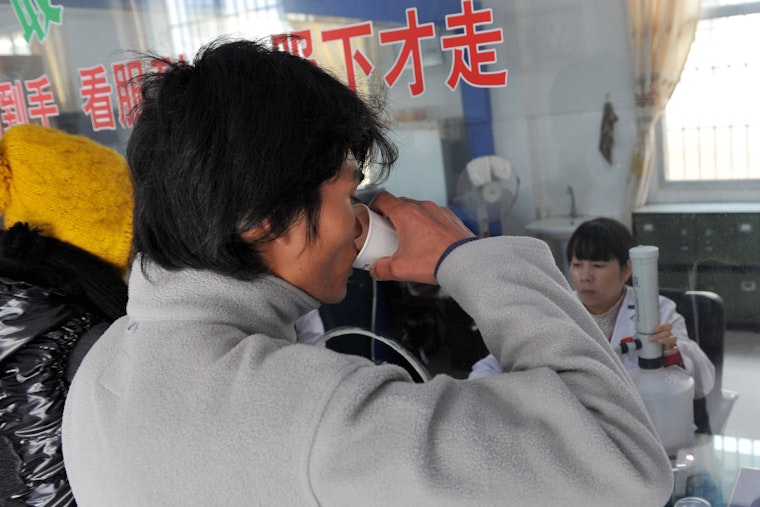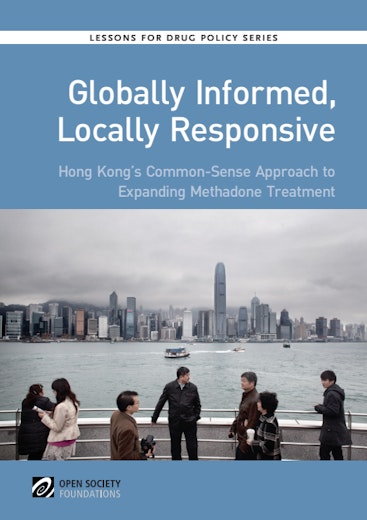The World Must Learn from Hong Kong’s Example
By Matthew Wilson & Joy Chia

In “Smack City,” the second episode of Adrian Cowell’s classic documentary series The Heroin Wars, we see Hong Kong’s drug trade from the perspective of heroin consumers and sellers evolve over a 30-year period.
When we first encounter Hong Kong in the late ’50s and early ’60s, it is experiencing high rates of addiction. The drug market is in transition from less-risky opium smoking to more high-risk heroin consumption—an unintended consequence of law enforcement efforts, as heroin is more concentrated and thus easier to conceal, traffic, sell, and consume.
By 1970, with an estimated 100,000 addicted drug users out of a population of 4 million, Hong Kong had one of the highest rates of drug addiction in the world. Yet by the mid-’90s, during the last period of filming, the narrator is surprised to observe that since their first filming—as heroin addiction had soared across the world—the number of dependent drug users in Hong Kong remained stable.
What could account for that stabilization despite a rapid increase in population?
In Globally Informed, Locally Responsive: Hong Kong’s Common-Sense Approach to Expanding Methadone Treatment, the newest addition to the Global Drug Policy Program’s Lessons for Drug Policy Series, Dr. Robert Newman provides an important piece of the answer.
Dr. Newman is widely known for his pioneering efforts in New York City to greatly expand access and acceptance of methadone to treat heroin addiction. But his involvement as an advisor to Hong Kong’s health authorities in the mid-1970s, when they were exploring options to rapidly expand treatment, has been less well-known.
Globally Informed, Locally Responsive tells the story of how Hong Kong authorities arrived at a model of methadone distribution, which was tailored to the local context, but still informed by comparative experience elsewhere in the world.
Starting in the mid-1970s, officials in Hong Kong could no longer ignore the health and social crisis associated with opioids and heroin. They were catalyzed by the recognition that the old approaches of prohibition and restricted treatment were simply insufficient.
Officials understood the need to expand universal access to treatment and found innovative ways to do so quickly. They also understood that the design of the new system had to be relatively easy to access and able meet patients’ needs.
Following a trip to Europe and the United States, key Hong Kong authorities returned with a conviction that the only way to achieve universal access was through a program designed like what they had seen in the somewhat similar urban environment of New York City.
However, the report does more than simply tell of Hong Kong’s success in treating heroin dependency and avoiding the worst of the HIV epidemic that devastated drug users throughout Asia in the 1980s. It also highlights how policymakers can learn from others’ experiences and adapt their recommendations.
Within a few short years, the program—which featured characteristics including convenient locations, accessible clinic hours, and no expectation that patients be “weaned off” methadone—was up and running. It resulted in high admission and retention rates, low HIV prevalence, crime reduction, and a decrease in homelessness among drug using populations.
Critically, Hong Kong policymakers resisted the established consensus that methadone could only be administered by highly specialized professionals—and showed that by relying on a mix of trained volunteers, medical professionals, and a limited number of social workers, the program could be brought to scale quickly, safely, and effectively.
While the methadone program in Hong Kong could be improved, it has unquestionably helped bring increasing rates of heroin use under control, and it has led to positive health and social outcomes for its citizens. As the United States currently struggles with its own epidemic of opioid misuse and fatal overdoses, policymakers should look to Hong Kong’s example.

Matthew Wilson is division director of Equity for Global Programs at the Open Society Foundations.
Joy Chia is a program officer in the East Asia Program at the Open Society Foundations.


